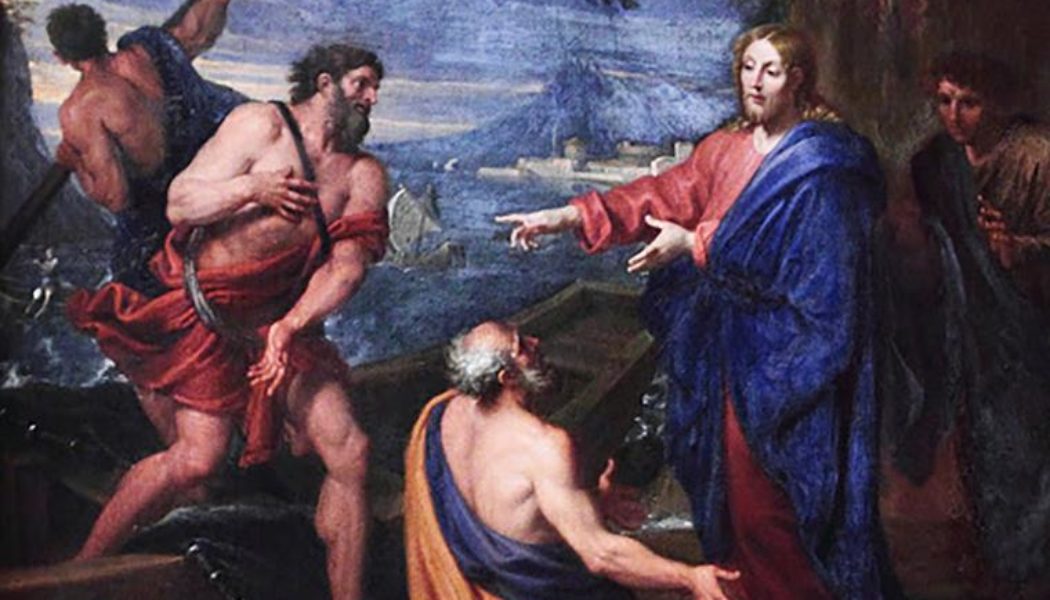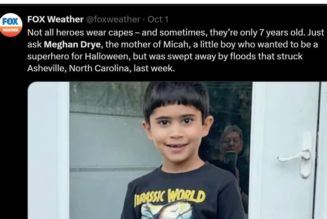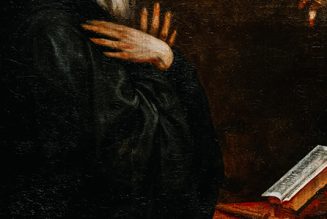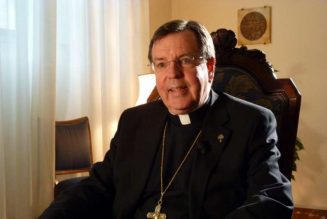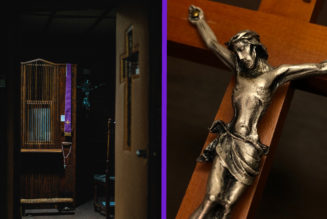
Each year, during the first weeks of Ordinary Time, the Church devotes attention to the call of the Apostles. Jesus has a variety of disciples but the Apostles — the 12 men called by Christ — hold a particular and unique role in his company and in his community. We speak of the bishops as their sucessors and deem one of the “notes” or features of the Church that makes it true is its apostolicity: “I believe in one, holy, catholic and apostolic Church.” So the Apostles are not some clerical preserve but, clearly, a distinct group given distinct authority by Christ himself.
As I said, the Church usually devotes attention early in Ordinary Time to the selection of the Apostles. This year, that attention is compressed: it’s limited to one Gospel on one Sunday — today — and focuses primarily on one Apostle, Peter. Others of the Apostles — James and John — are also mentioned, and they often form a kind of “inner circle” within the Apostles, whom Jesus often takes along specifically with him at privileged moments (e.g., the Transfiguration). But today we learn how they came to be Apostles.
Jesus has been teaching. He taught in Nazareth, proclaiming his Messianic mission. He almost got killed for it. He obviously continued to teach, as today’s Gospel tells us “the crowd was pressing in … and listening.” So he puts some distance in between him and them while acquiring a better stage by putting out in Simon’s boat. After teaching the crowd, it’s time to teach them.
Jesus invites Peter to take up his fishing invitation. One can imagine a seasoned fisherman dubious of this Nazarene landlubber, especially after his own poor catch the previous night. But he humors him. And he discovers that, fishing with Jesus, his catch exceeds his wildest dreams, his capacities, and his boat.
“Without me, you can do nothing” (John 15:5). Conversely, with me you can do what you never thought possible. You will even be catching men.
Peter’s reaction is to try to turn away. It’s natural in our present, fallen state. As the German theologian Rudolf Otto put it, God is the Mysterium tremendum et fascinans, the Mystery that is, at the same time, great and fearful and yet attractive. When we come into contact with this Mystery, we first recognize the dissonance between him and us, his holiness and our lack of it. We are aware that we do not fit in the presence of him.
But, at the same time, there’s something about him that makes us want to stay.
Isaiah feels that in the first reading. His first reaction is an awareness of his sinfulness, from which the angel cleanses him. His second reaction is enthuasiastically to volunteer: “Send me!”
Peter feels the same in the Gospel. His first reaction is fear, asking the Lord who has just done a great thing in his sight, a thing that only a holy one could do, to leave. He’s afraid. Jesus loves. “Love has no room for fear” (1 John 4:18). That’s why Jesus says, as he will many times to the Apostles (and us): “Be not afraid!”
We can let fear paralyze us. Or, like Peter, we can grapple with that fear but then, taking Christ at his Word, “leave everything and follow him.” We can respond, like Isaiah, and offer ourselves.
How many opportunities do we forfeit because we do not believe that he who gives them also gives the strength to achieve them and wants us to?
Perhaps it’s not a prominent vocation like Peter’s. But if we turn out of fear from the Lord, running from him (as, for example, when he seeks to reconcile us in Confession), are we not forfeiting as great a vocation, as great an opportunity in our lives as Peter might have, had he not overcome those fears and accepted Christ’s invitation? Holiness is greatness. Fear tries to drive away love. Don’t let it!
Why do you want to hold on to your own recognized sinfulness when he’s offering something more attractive, something you deep down want? For all his faults and subsequent failings, Peter didn’t.
Michel Corneille the Younger (1642-1708) painted today’s Gospel. “The Calling of Peter and Andrew” captures in oil the moment in Luke just after the Apostles landed with their boatloads full of fish. The two on the left, clearly muscular, are grappling with their treasure. Blue hues are dominant in the painting, appropriate to a maritime environment. The red and yellow in fact offer the prime differentiating contrasts.
Peter, his back to us (and it should be to everything that is not Christ), has already fallen to his knees before Jesus, confessing his sinfulness. Jesus does not reprove him. He points to what, thanks to his power, they’ve just achieved, and foretells even greater and more significant catches. Now the question is: what do I do?
What do I do?
Do I follow him? Or content myself with a momentary glut at the fish market?
Corneille started in historical painting but eventually progressed to religious painting, his “Our Lord’s Appearance to St. Peter after the Resurrection” leading to his election to the French Royal Academy. He painted for King Louis XIV and for many French churches. He was also a noted engraver, for which he is more known today. His winning the Prix de Rome gave him four years to study in that city, bringing Italian influences into his works.
The painting is owned by the Musée des Beaux-Arts in Rennes in France’s Brittany region.
Join Our Telegram Group : Salvation & Prosperity
